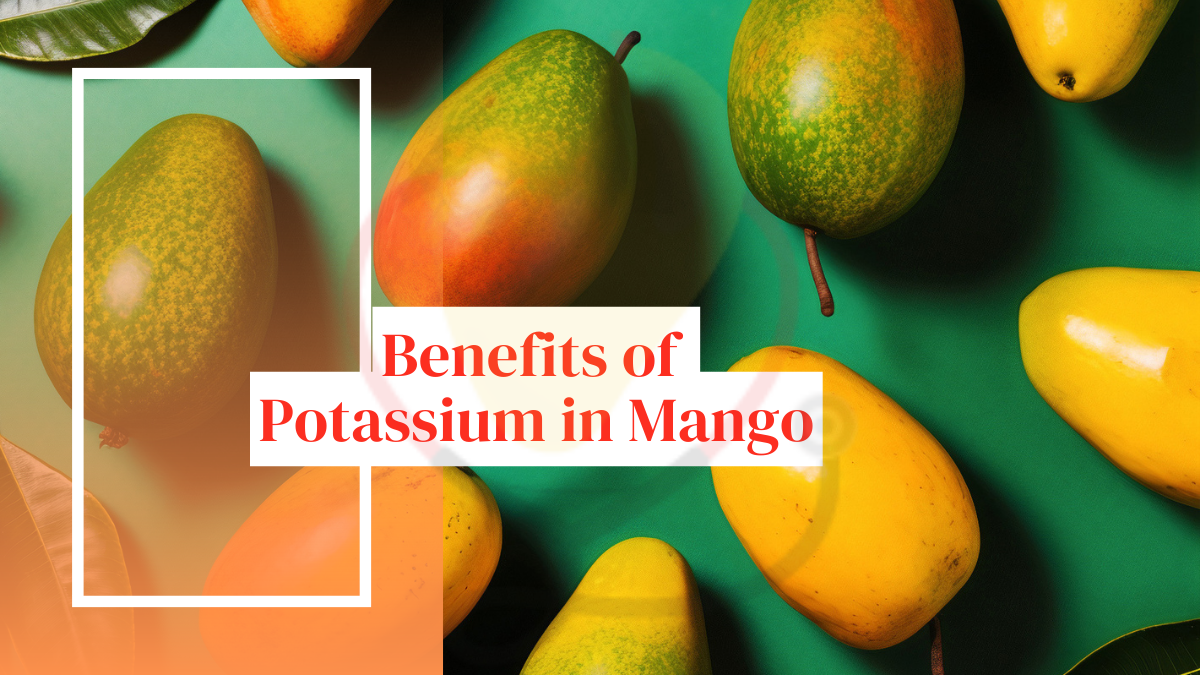Mangoes are a natural source of potassium, with varying levels depending on the variety. [1]
This nutrient content contributes to the numerous health benefits associated with consuming mangoes.
In this article, we’ll delve into the various benefits of potassium in mango, exploring how this essential mineral contributes to your overall health and well-being.
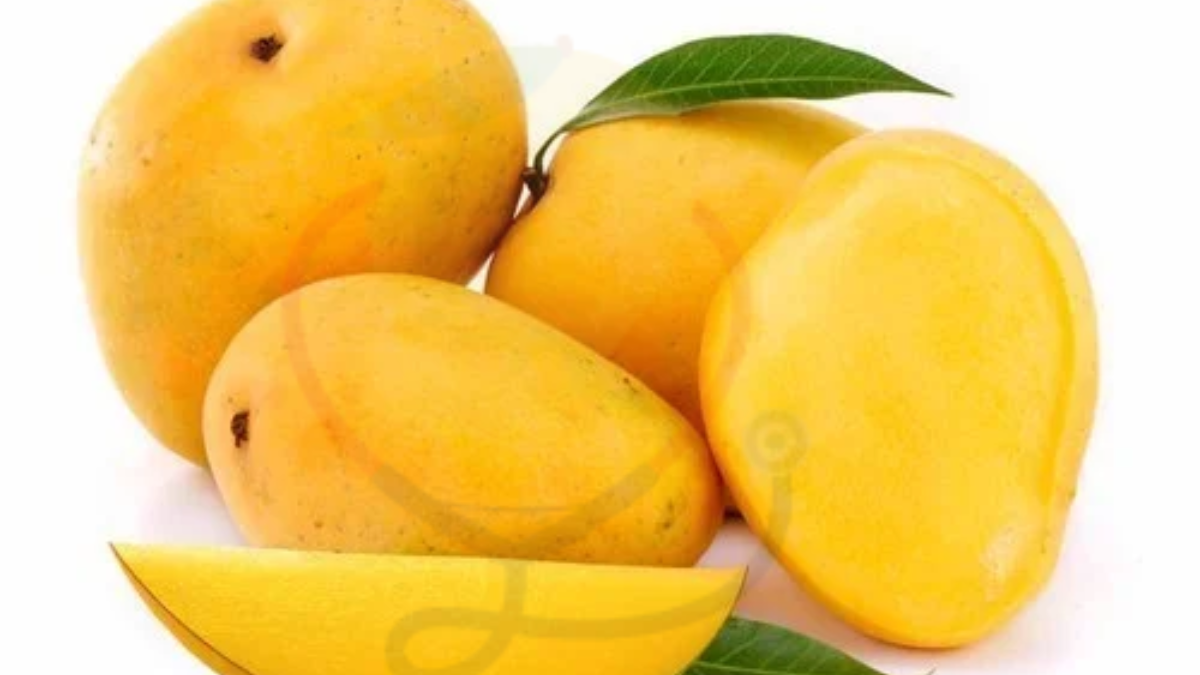
Importance of Potassium in Mango
Potassium is a mineral and electrolyte that plays a crucial role in maintaining proper bodily functions.
It is known for its ability to balance fluids, regulate muscle contractions, and support nerve signals.
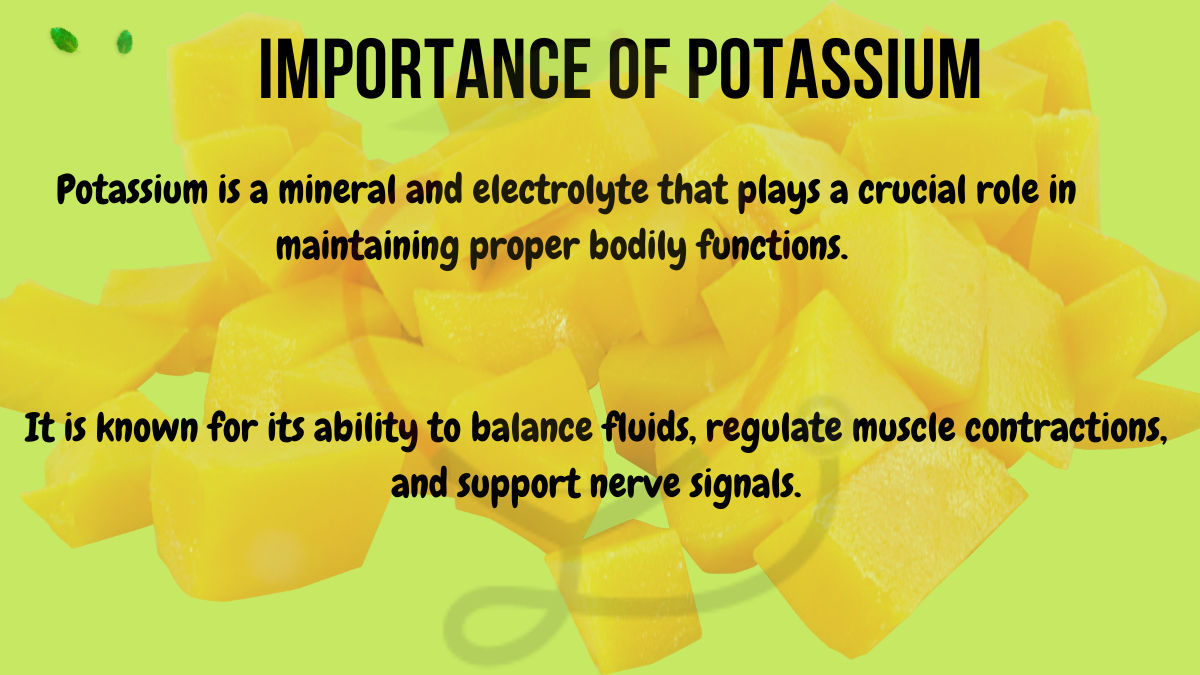
Amount of Potassium in Mango
Mangoes are a delicious and nutritious fruit that contain varying amounts of potassium depending on their size and variety.
On average, a medium-sized mango weighing around 200 grams provide approximately 168 milligrams (mg) of potassium.
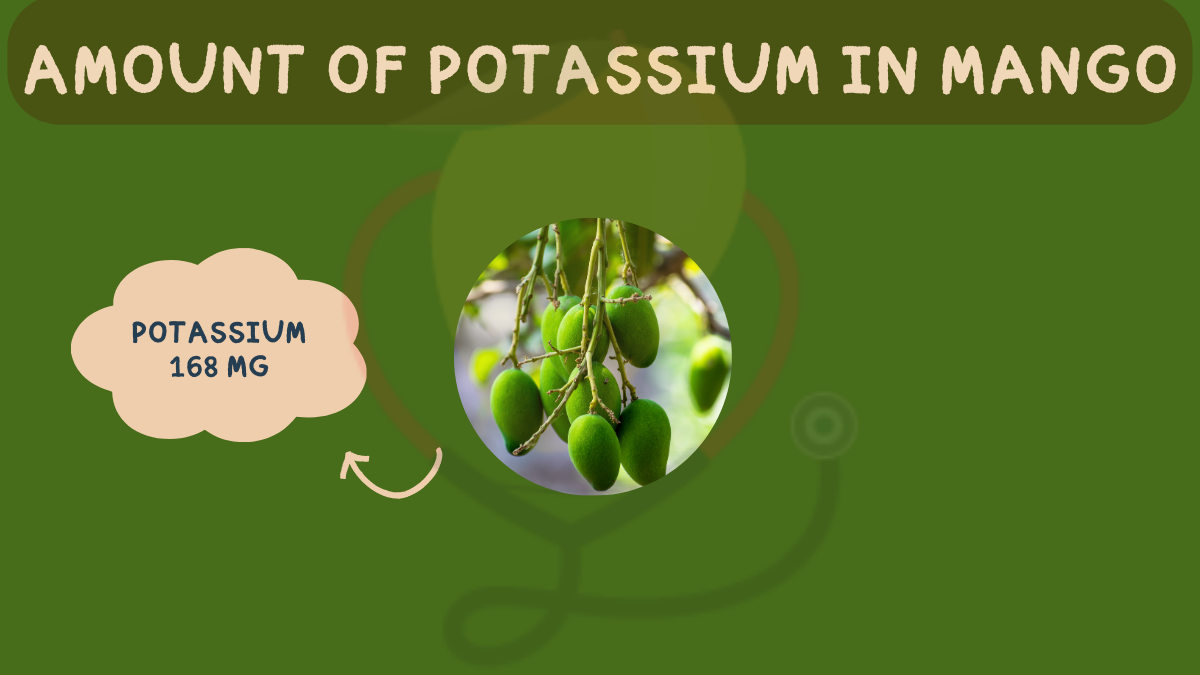
Health Benefits of Potassium in Mango
1: Regulation of Blood Pressure
Potassium is renowned for its role in regulating blood pressure levels. [2]
Mangoes, as potassium-rich fruits, can aid in controlling hypertension and reducing the risk of cardiovascular diseases.
2: Muscle Function and Cramp Prevention
Maintaining optimal potassium levels is essential for proper muscle function.
Adequate potassium intake can help prevent muscle cramps and enhance muscle performance.
3: Heart Health and Electrolyte Balance
Potassium promotes heart health by assisting in maintaining proper electrolyte balance. [3]
This, in turn, supports heart rhythm and overall cardiovascular well-being.
4: Boosting Kidney Function
Potassium contributes to kidney function by aiding in waste elimination and fluid balance. [4]
Including mangoes in your diet can support kidney health.
5: Bone Health and Osteoporosis Prevention
Mangoes contain vitamin K, which is important for bone health. [5]
Combined with potassium, mangoes contribute to bone density and help prevent conditions like osteoporosis.
6: Enhancing Nervous System Activity
Potassium is essential for nerve signal transmission.
Adequate potassium intake from mangoes can improve nervous system activity and cognitive function.
7: Metabolism and Energy Production
Potassium plays a role in metabolism and energy production within cells.
Enjoying mangoes can provide a natural energy boost to fuel your daily activities.
8: Skin Hydration and Radiance
Potassium contributes to maintaining skin hydration and promoting a radiant complexion. [6]
Including mangoes in your diet can contribute to healthy, glowing skin.
Mango Varieties Rich in Potassium
While potassium content can vary among mango varieties, some like Alphonso and Kent are notably rich in this essential mineral.
Mangoes stand out not only for their delectable taste but also for their potent nutritional profile, including significant levels of potassium.
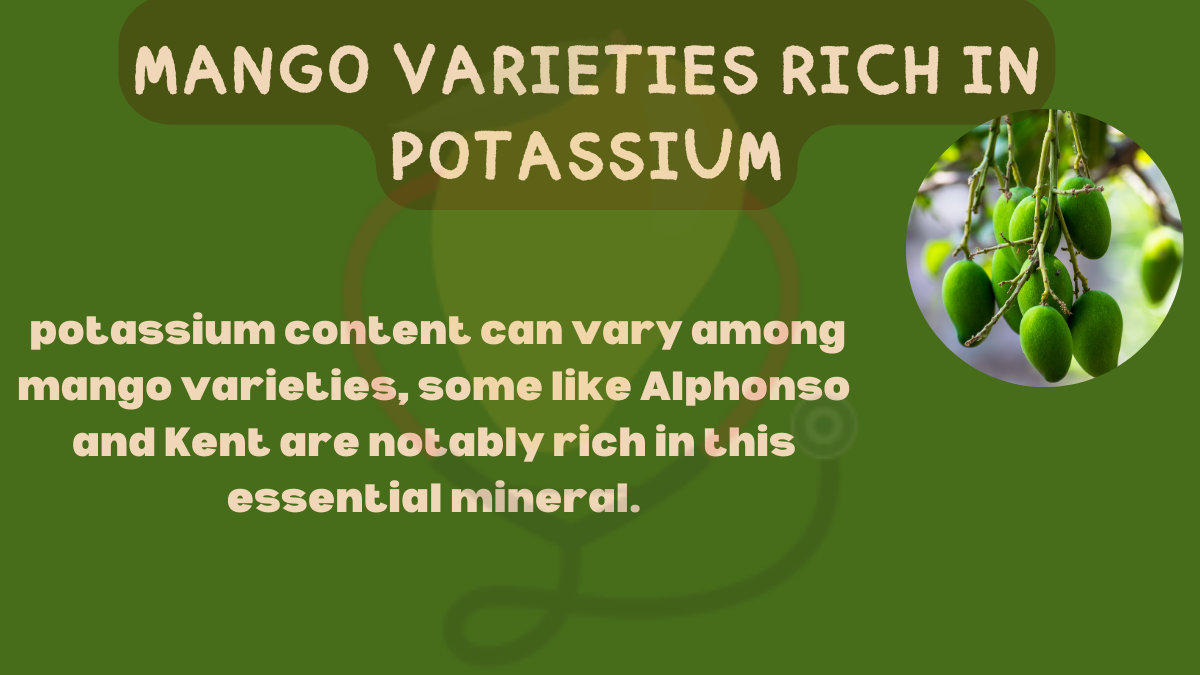
Incorporating these tropical fruits into your diet can contribute to improved heart health, muscle function, kidney health, and more.
FAQs
Is mango high in potassium?
Mangoes are classified by health experts as having moderate to elevated levels of potassium. A serving of raw mango, weighing 165 grams (g), supplies 277 milligrams (mg) of potassium, equivalent to 5.89% of the daily potassium requirement for adults. The presence of fiber, potassium, and vitamins in mangoes supports arterial function and diminishes the likelihood of heart disease.
Can I get too much potassium from eating mangoes?
While mangoes are a good source of potassium, excessive consumption should be avoided, especially if you have kidney problems.
Are there any other nutrients in mangoes besides potassium?
Yes, mangoes are rich in vitamins, minerals, and antioxidants that contribute to overall health.
Can mangoes help with weight loss?
Mangoes are relatively low in calories and high in fiber, making them a potentially satisfying snack for weight management.
Are potassium supplements a good alternative to potassium-rich foods like mangoes?
It’s generally recommended to obtain nutrients from whole foods like mangoes rather than relying solely on supplements.
Are there any allergy concerns with mangoes?
Some individuals may experience allergic reactions to mangoes, particularly those with sensitivities to certain proteins.

